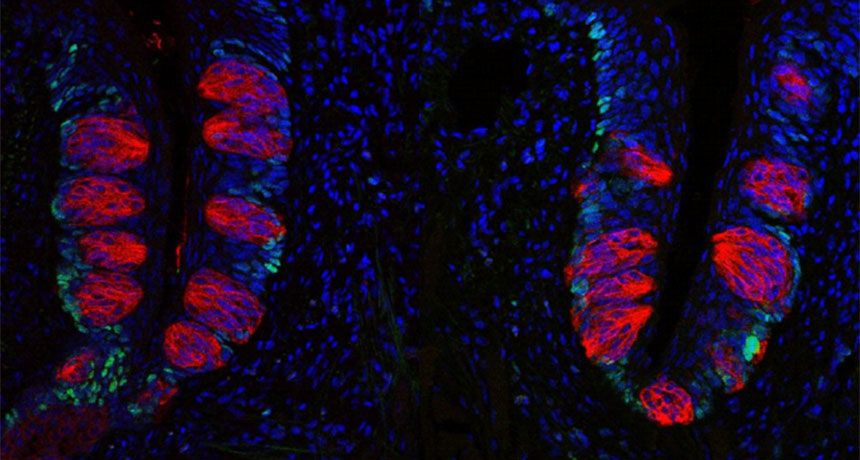How obesity makes it harder to taste
Inflammation linked to the disease caused the loss of taste buds in mice

BYE BYE BUDS Mice that became obese on a high-fat diet (right) lost a quarter of their taste buds (stained red) and also had fewer progenitor cells (stained green) — which give rise to new taste buds — than mice of a healthy weight on a regular diet (left).
A. Kaufman et al/PLOS Biology 2018







